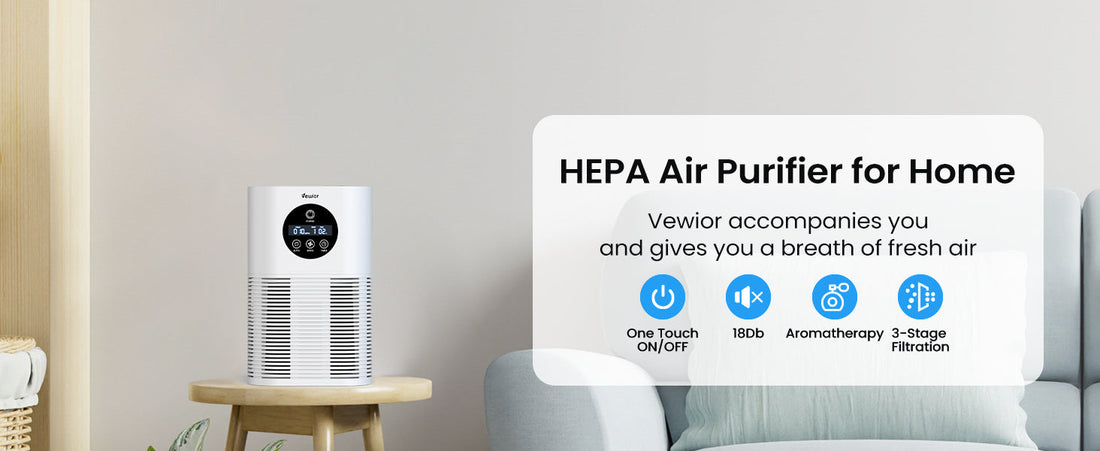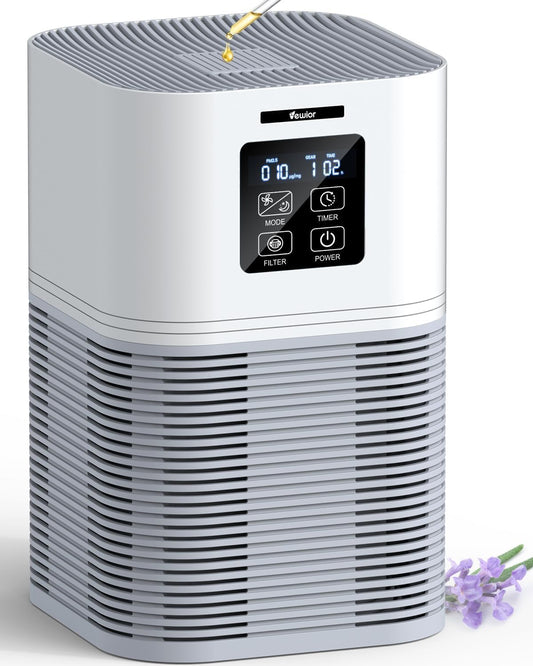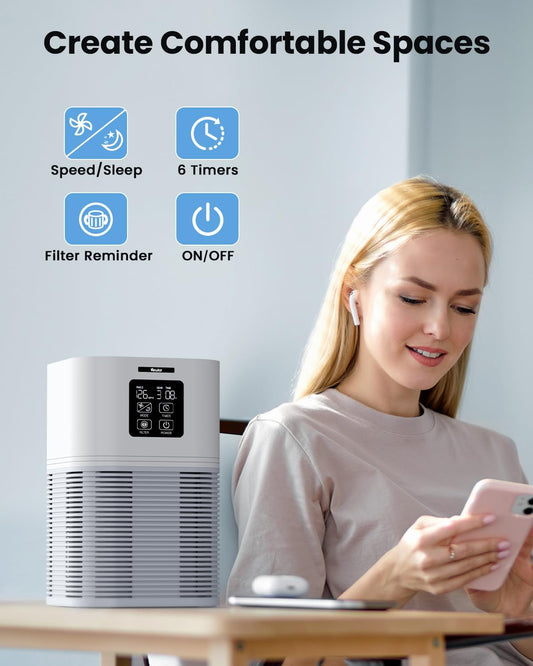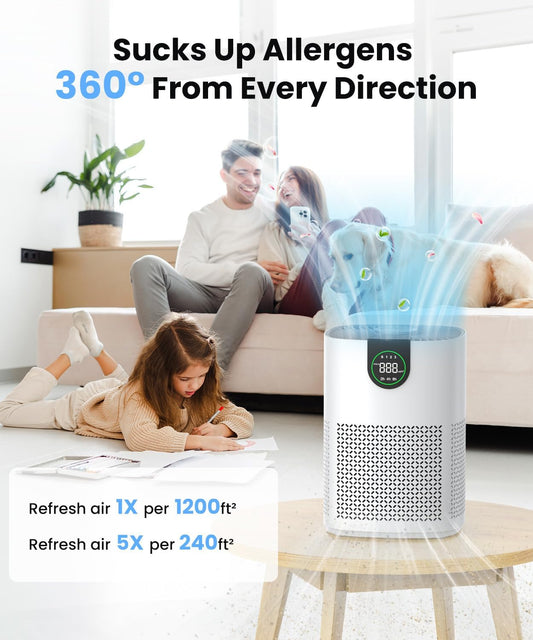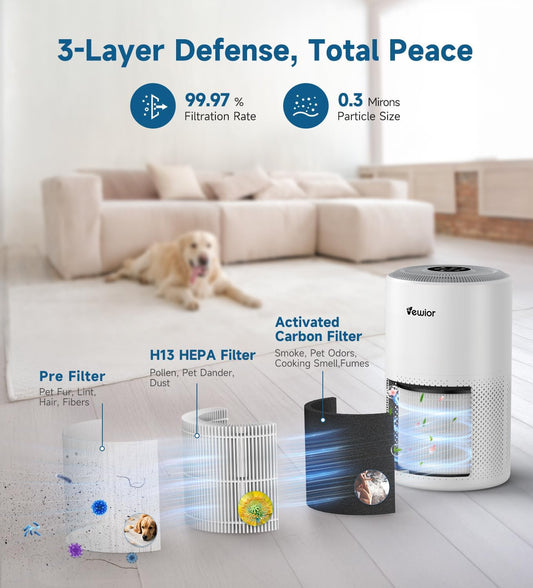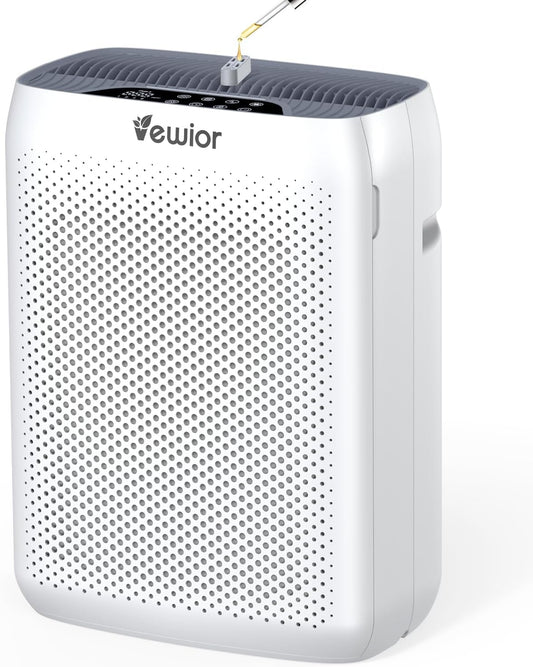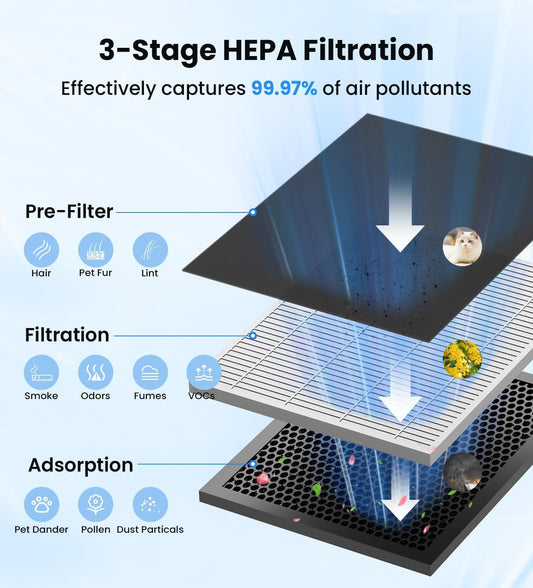If you’ve ever tossed and turned due to stuffiness, allergies, or unexplained nighttime congestion, you’re not alone. Poor indoor air quality is a silent disruptor of sleep, affecting millions of people. But could an air purifier be the solution to waking up feeling refreshed? Let’s dive into how cleaner air supports better sleep and what to look for in a bedroom-friendly air purifier.
Why Air Quality Affects Your Sleep
During sleep, your body repairs itself—but breathing polluted air can interfere with this process. Common nighttime irritants include:
-
Dust mites and allergens: Trigger congestion or asthma symptoms.
-
VOCs (volatile organic compounds): Emitted by mattresses, paints, or cleaning products, causing headaches or throat irritation.
-
High CO2 levels: Stale air from poor ventilation can lead to grogginess.
Studies show that reducing these pollutants can improve sleep efficiency and reduce nighttime awakenings.
How Air Purifiers Promote Restful Sleep
-
Reducing Allergens
True HEPA filters capture airborne particles like pollen, pet dander, and dust mite debris, alleviating allergy symptoms that disrupt sleep. -
Neutralizing Odors and VOCs
Activated carbon filters absorb odors from bedding, sweat, or household products, creating a fresher sleep environment. -
Balancing Humidity (Optional)
Some air purifiers integrate humidifiers to maintain 40–60% humidity, preventing dry air that causes snoring or irritated sinuses.
Key Features of a Sleep-Optimized Air Purifier
-
Whisper-Quiet Operation: Look for a “sleep mode” with noise levels below 25 dB—quieter than a whisper.
-
Dimming or Off Lights: Eliminate disruptive LED displays for pitch-black rooms.
-
Auto Mode with Sensors: Adjusts fan speed based on real-time air quality, so it ramps up only when needed.
-
Compact Design: Fits seamlessly into bedroom layouts without dominating space.
Tips for Using an Air Purifier in the Bedroom
-
Run It 24/7: Keep it on low at night to maintain clean air without noise.
-
Position Near the Bed: Place it 3–5 feet from your head for optimal airflow (but avoid direct drafts).
-
Pair with Hypoallergenic Bedding: Combine with dust-mite-proof covers for maximum allergy relief.
-
Close Windows: Prevent outdoor pollutants like traffic exhaust from entering at night.
Do Air Purifiers Help with Snoring or Sleep Apnea?
While purifiers don’t cure sleep disorders, they can mitigate factors that worsen them. For example:
-
Reducing airborne irritants may decrease nasal congestion linked to snoring.
-
Lowering VOCs and CO2 levels supports deeper, uninterrupted sleep cycles.
Why Vewior is Perfect for Bedrooms
Our A1 is engineered for sleep-enhancing air quality:
-
Zero Noise Sleep Mode: Operates at 22 dB—inaudible even for light sleepers.
-
Moonlight Display: Soft, dimmable glow or fully dark screen options.
-
Smart Circadian Mode: Adjusts settings based on time of day (e.g., higher filtration during daytime, quieter at night).
-
5-Stage Filtration: HEPA + carbon + antimicrobial layer to combat allergens, odors, and mold.
The Bottom Line
Clean air isn’t just about health—it’s a cornerstone of restorative sleep. By removing allergens, balancing humidity, and operating silently, a high-quality air purifier can transform your bedroom into a sanctuary for uninterrupted rest.

